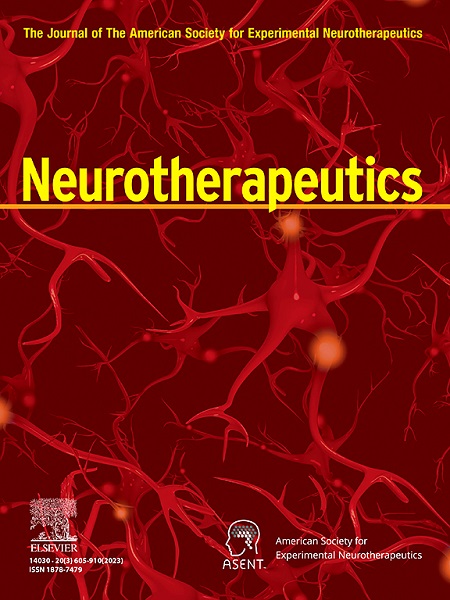Current perspectives on endovascular therapy for large core ischemic stroke
IF 6.9
2区 医学
Q1 CLINICAL NEUROLOGY
引用次数: 0
Abstract
Historically, patients with ischemic stroke and an extensive region of irreversibly injured ischemic core were excluded from endovascular thrombectomy trials due to concerns about limited benefit and high procedural risk. This has fundamentally changed with the publication of five strongly positive randomized controlled trials in this group of patients since 2022 and a sixth trial that showed consistent trends and was positive in per protocol analysis and long-term follow-up. This narrative review summarizes the key findings of these trials, including imaging selection criteria, functional and safety outcomes, and long-term benefits. Across trials, thrombectomy consistently improved functional outcomes at 3-months and 12-months. Absolute functional independence (modified Rankin Scale score 0–2) rates were lower than the trials that enrolled patients with smaller ischemic core volumes, but still significantly favored thrombectomy. Safety outcomes demonstrated a reduction in mortality with EVT and no significant increase in rates of symptomatic intracerebral hemorrhage. While guidelines are being updated to include large core thrombectomy, real-world decision-making remains complex, requiring careful consideration of patient-specific factors, including functional status, infarct location, and patient preferences. Future research should focus on exploring adjunctive therapies and accelerated systems of care to further improve outcomes in this patient population.
血管内治疗大面积缺血性脑卒中的最新进展。
从历史上看,缺血性卒中和大面积不可逆缺血性核心损伤的患者被排除在血管内取栓试验之外,因为考虑到有限的益处和较高的手术风险。自2022年以来,在这组患者中发表了五项强烈阳性的随机对照试验,第六项试验在每个方案分析和长期随访中显示出一致的趋势和阳性,这从根本上改变了这种情况。这篇叙述性综述总结了这些试验的主要发现,包括影像学选择标准、功能和安全性结果以及长期收益。在所有试验中,取栓持续改善3个月和12个月的功能结局。绝对功能独立性(改良Rankin量表评分0-2)率低于入组缺血性核心容量较小患者的试验,但仍明显倾向于取栓。安全性结果显示EVT的死亡率降低,症状性脑出血发生率无显著增加。虽然指南正在更新,以纳入大型核心血栓切除术,但现实世界的决策仍然很复杂,需要仔细考虑患者的特定因素,包括功能状态、梗死位置和患者偏好。未来的研究应侧重于探索辅助疗法和加速护理系统,以进一步改善这一患者群体的预后。
本文章由计算机程序翻译,如有差异,请以英文原文为准。
求助全文
约1分钟内获得全文
求助全文
来源期刊

Neurotherapeutics
医学-神经科学
CiteScore
11.00
自引率
3.50%
发文量
154
审稿时长
6-12 weeks
期刊介绍:
Neurotherapeutics® is the journal of the American Society for Experimental Neurotherapeutics (ASENT). Each issue provides critical reviews of an important topic relating to the treatment of neurological disorders written by international authorities.
The Journal also publishes original research articles in translational neuroscience including descriptions of cutting edge therapies that cross disciplinary lines and represent important contributions to neurotherapeutics for medical practitioners and other researchers in the field.
Neurotherapeutics ® delivers a multidisciplinary perspective on the frontiers of translational neuroscience, provides perspectives on current research and practice, and covers social and ethical as well as scientific issues.
 求助内容:
求助内容: 应助结果提醒方式:
应助结果提醒方式:


